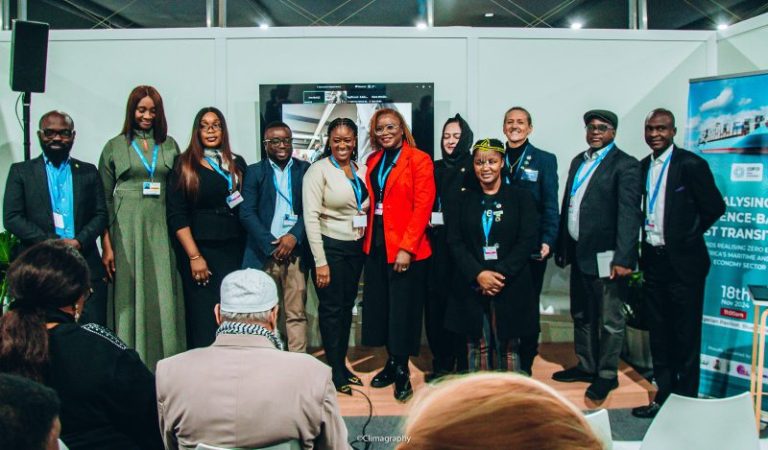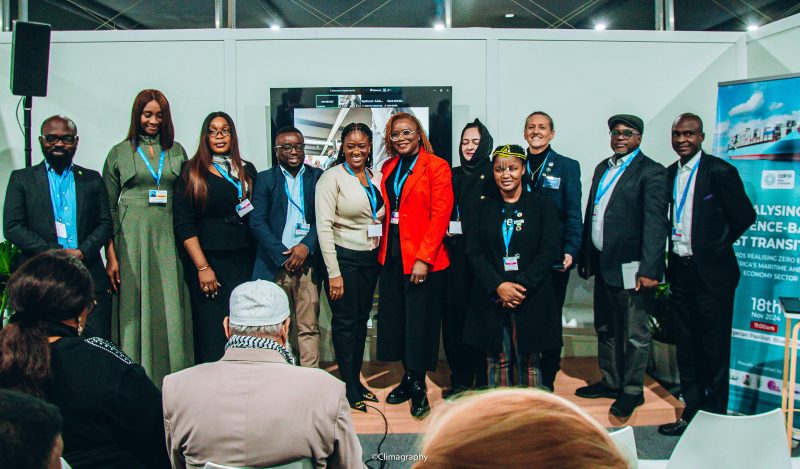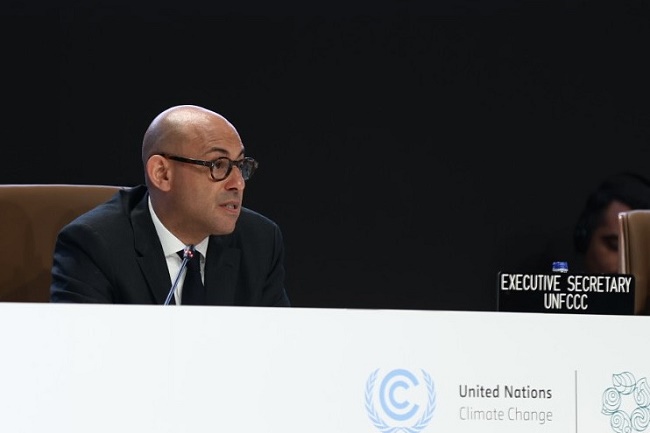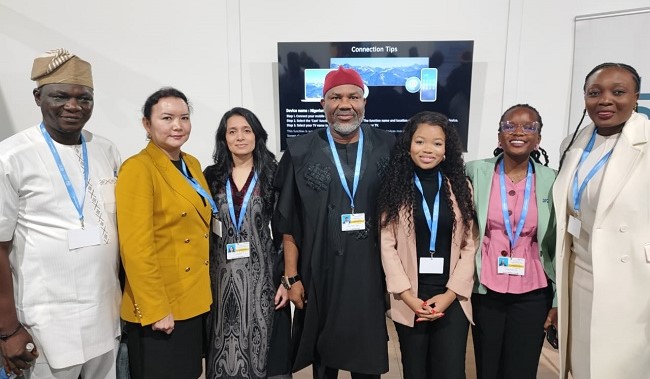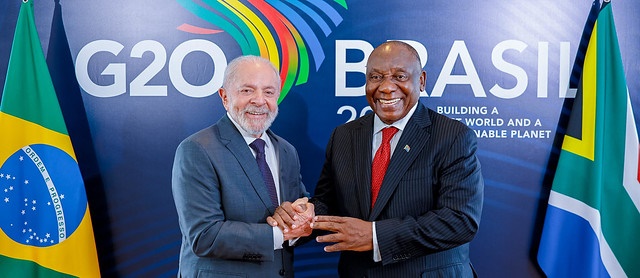The GMO-Free Nigeria Alliance in a Memorandum calls on the Nigerian National Assembly, which is investigating the impacts of genetically modified crops in the country, to ban GMOs in Nigeria and to, instead, invest in Agroecology comprising of Organic Agriculture, Regenerative Agriculture, Agroforestry and other practices that are proven to be able to transform the Nigerian food system to sustainability

GMOs do not Improve Productivity
In September 2024 the National Cotton Association of Nigeria (NACOTAN) reported that they “did not record any significant increase in their yields compared to the local seed varieties but instead, since the introduction of GM cotton seeds during the 2020/2021 farming season, yield per hectare has remained almost the same”.
They also reported that no other plant has been able to germinate on the farmlands where the GM seeds were planted, even after four years.
Across the country, farmers have complained that with GMOs, productivity reduces in the second planting season, meaning farmers cannot replant these seeds but have to continuously purchase the seeds every new season.
While some GMOs are designed to have increased levels of some nutrients, studies have revealed that other essential nutrients or functions can be reduced in the process. An in-depth scientific comparison of GM crops and their non-GM varieties shows that the assumption of substantial equivalence is false, as unexpected differences has been found. Examples include that GM soy had 12–14% lower amounts of isoflavones than non-GM soy; GM soy had 27% higher levels of a major allergen, trypsin-inhibitor, than the non-GM parent variety.
Burkina Faso, in 2016 phased out GM Cotton because it produced a poor-quality lint which fetched low prices for the farmers and amounted to millions of dollars of losses. The same variety was approved for commercial release in Nigeria, that same year.
In India, poor productivity and other failed promises of GMOs have led to thousands of farmer suicides. The story of the failure of Bt cotton in India is a classic example of this destructive technology being promoted as a solution. In Punjab alone, the area under cotton has declined by 46 per cent in 2024, a testament to the failure of Bt cotton to control pink bollworm and other pests. Chemical use in cotton cultivation has increased while yields have stagnated or fallen, while almost all cotton seeds are being controlled by the multinational corporation Bayer/Monsanto.
No Sufficient, Long-term Risk Assessment Conducted
Till date there is no evidence of long-term risk assessment including clinical trials conducted before release of the GM crops introduced in Nigeria so far.
This is not peculiar to Nigeria but observed in several other African countries. This suggests a strategic effort to silent the negative implications that GMOs present while opening up market and increasing profit for the multinational biotech corporations.
After a nine-year battle with Monsanto, the African Centre for Biodiversity (ACB) and indeed the South African people on Thursday, October 22, 2024, won a pivotal decision in South Africa’s Supreme Court where the court agreed with the ACB that South Africa’s Executive Council of the GMO Act had approved Monsanto’s drought-resistant maize without fully assessing its safety for human health and the environment, disregarding evidence from other experts.
This ruling marks South Africa’s first judicial decision on GMOs and highlights a longstanding issue: for 28 years, the Executive Council of the GMO Act has licensed western GMOs without adequate health and environmental impact assessments.
This applies to the Nigerian government where over 25 GM products have been approved for various purposes without adequate long term risk assessment. We cannot claim to be immune to the dangers that GMOs and attendant chemicals such as glyphosate pose to human and environmental health.
Risks to Human Health: Several studies have linked the consumption of GMOs to a myriad of diseases including antibiotics resistance – the commercially approved Bt Cowpea expresses an enzyme which confers resistance to antibiotics – neomycin phosphotransferase II (NPTII). Multiple animal studies show significant immune dysregulation, including upregulation of cytokines (protein molecules involved in immune responses) associated with asthma, allergy, and inflammation.
Multiple toxins from GMOs have been detected in 93% maternal and 80% fetal blood including non-pregnant women’s blood. These toxins designed to kill crop pests are reaching humans and babies in the womb and could lead to allergies, miscarriage, and cancer.
Threats to Biodiversity and Environmental Sustainability: There is the severe threat of irreversible genetic contamination due to cross-pollination which could also lead to production of uncontrollable plant varieties and mutated plant varieties. Over 80% of GMOs are designed to be herbicide tolerant. These herbicides do not only destroy the target weeds but also non-target organisms that are essential for soil health and overall ecosystem function. These chemicals can also run off to contaminate drinking ground water and surface water including drinking water sources.
Mexico has in 2024, placed an indefinite ban on genetically engineered corn. The courts said from the evidence before it, genetically engineered corn posed “the risk of imminent harm to the environment.” Furthermore, they will “suspend all activities involving the planting of transgenic corn in the country and end the granting of permission for experimental and pilot commercial plantings.” The ruling provided a protection for the 20,000 varieties of corn grown in Mexico and Central America.
Nigerians’ Right to Safe Food
Decisions made by the government should be in the interest of the Nigerian people. Since this year, 2024, there has been increased demands from the Nigerian people in online media and several other fora for a ban on GMOs. Nigerians do not want this technology in our food and the government’s persistent approval of GMOs, means a total disregard for the rights of the people and exposes the vested interest in this technology.
GMOs are not currently being labeled in Nigeria. Although this is important, it is not a realistic practice considering of socio-economic context; with food mostly sold in basins in open markets and in processed forms.
Additionally, Nigerians are consuming imported processed foods bought from supermarkets without any idea that they are made from the genetically modified organisms (GMOs). The manner in which these items are imported into the country calls for serious concern.
Although the National Biosafety Management Agency (NBMA) has said illegal importation of GMOs into the country is being checked, these products are abundant in our market shelves (over 50 different brands including cereals, vegetable oils, spices, ice-cream, cake mixes etc) as revealed by a survey which Health of Mother Earth Foundation carried out across 10 Nigerian cities in 2018, 2019 and 2023.
Key Demands of the GMO-Free Nigeria Alliance
- A ban on all GMOs for planting for food or feed and processing in Nigeria.
- A ban of all imported processed foods containing bioengineered ingredients in our market shelves.
- A nullification of permits so far granted without sufficient risk assessment
- An investment in Agroecology which assures food security and food sovereignty while strengthening the Nigerian economy.

